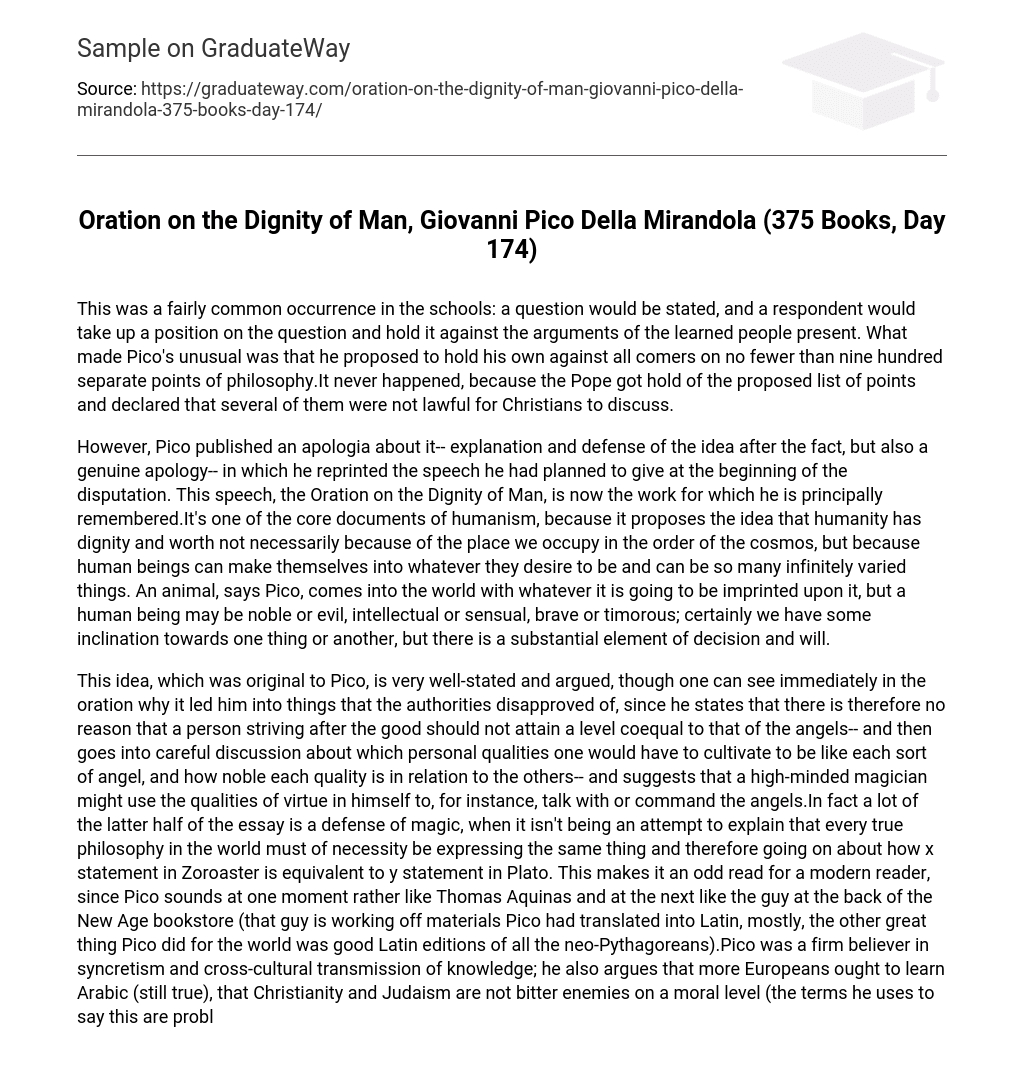This was a common occurrence in schools: a question would be asked, and someone would take a position on the question and defend it against the arguments of others present. However, Pico’s situation was unique because he intended to defend his own position on nine hundred different philosophical points. Unfortunately, this never happened because the Pope obtained the list of points and deemed that some of them were not appropriate topics for Christians to discuss.
However, Pico authored a retrospective explanation and defense of the concept, accompanied by a sincere apology. He reissued the speech he had initially planned to deliver at the start of the dispute. This speech, titled the Oration on the Dignity of Man, is his primary legacy. It holds great significance in humanism as it posits that our dignity and value as humans are not solely determined by our position in the universe, but rather by our ability to mold ourselves into whatever we aspire to be, with limitless possibilities. Pico contends that animals possess inherent traits from birth, whereas humans have the potential to embody nobility or wickedness, intellect or sensuality, courage or timidity. Although we may possess certain predispositions, there also exists a significant aspect of free will and choice.
Pico’s original idea is well-stated and argued. However, it is clear why this idea disapproved of in the authorities, as Pico suggests that individuals striving for goodness can reach the same level as angels. He discusses the qualities one must cultivate to be like each type of angel and how these qualities relate to each other. Additionally, he proposes that a virtuous magician could use these qualities to communicate with or control angels.
The latter half of the essay primarily defends magic and attempts to explain that all true philosophies express the same thing. Pico goes on to compare statements from Zoroaster to those of Plato. This aspect may seem unusual to modern readers, as Pico alternates between sounding like Thomas Aquinas and resembling someone found in a New Age bookstore. It is worth noting that the materials used by the person in the bookstore were translated into Latin by Pico, who also made valuable Latin editions of neo-Pythagorean texts. Pico strongly believed in syncretism and the transmission of knowledge across cultures.He further asserts the importance of Europeans acquiring knowledge in Arabic, which remains valid. He also challenges the notion that Christianity and Judaism are inherently hostile towards each other (though his chosen language to express this is offensive, it was a groundbreaking idea compared to prevailing beliefs at that time). Additionally, he falsely claims that the hidden doctrines of the Zoroastrians align with those of the Kabbalah (a subject that was not extensively contemplated by Italian scholars during that era).
It’s not surprising that someone poisoned him. I read a specific edition published by Gateway Editions and the translation seems fine. However, the introduction by Russell Kirk is strongly advised to be avoided as it hasn’t been revised since 1956 and is a genuinely foolish anti-Communist rant. They really should provide a better preface.





